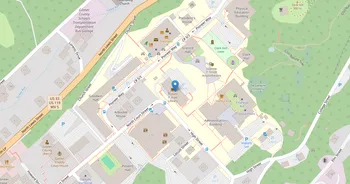Fairmont State University : Overview, Courses, Scholarships & Rankings
About Fairmont State University
Set in the hills of north-central West Virginia, Fairmont State is known for practical, teaching-focused academics that blend the arts and sciences with strengths in education, health fields, technology, and business. Labs and studios back up real projects, and the library, tutoring, writing help, advising, and counseling keep students supported. It feels personal without being small.
Campus life hums with clubs, music and theater, intramurals, and plenty of outdoor time on nearby trails and rivers. The vibe is friendly, hard-working, and welcoming to first-gen students and commuters as much as residence hall regulars. Career prep shows up early through internships, school and clinical placements, resume help, and employer meetups, with regional connections that count. In town, local coffee, service projects, and a close-knit community offer real chances to pitch in. Falcon pride runs deep here. It sticks.
Key Institutional Details
Contact & Profile
Academic & Institutional
Academic Programs & Fields of Study
Fairmont State University offers 40 degree programs across 22 major academic fields, graduating approximately 917 students annually. The most popular fields by graduate volume are Health (3 programs, 233 graduates), Education (4 programs, 121 graduates), Social Sciences (3 programs, 92 graduates), Security & Safety (2 programs, 89 graduates) and Business (3 programs, 88 graduates). Explore program details, award levels, and graduate demographics below.
Health (3 programs, 233 graduates)
Healthcare Professions, Medical Sciences and Clinical Practice
| Program Name | Graduates | Gender Distribution | Award Levels | CIP Code |
|---|---|---|---|---|
| Registered Nursing | 197 |
|
Associate's
Bachelor's
|
51.3801 |
| Health Administration and Management | 33 |
|
Bachelor's
Master's
|
51.0701 |
| Public Health Education and Promotion | 3 |
|
Bachelor's
|
51.2207 |
Education (4 programs, 121 graduates)
Educational Sciences, Teaching Methods and Pedagogy
| Program Name | Graduates | Gender Distribution | Award Levels | CIP Code |
|---|---|---|---|---|
| Middle School Education and Teaching | 57 |
|
Master's
|
13.1203 |
| General Education | 41 |
|
Bachelor's
|
13.0101 |
| Educational Leadership and Administration | 15 |
|
Post-Master's
|
13.0401 |
| Teacher Education and Professional Development | 8 |
|
Master's
|
13.1299 |
Social Sciences (3 programs, 92 graduates)
Sociology, Anthropology and Political Science Studies
| Program Name | Graduates | Gender Distribution | Award Levels | CIP Code |
|---|---|---|---|---|
| National Security Policy | 53 |
|
Bachelor's
Master's
|
45.0902 |
| Political Science and Government | 33 |
|
Bachelor's
|
45.1001 |
| Sociology | 6 |
|
Bachelor's
|
45.1101 |
Security & Safety (2 programs, 89 graduates)
Emergency Management, Law Enforcement and Public Safety
| Program Name | Graduates | Gender Distribution | Award Levels | CIP Code |
|---|---|---|---|---|
| Criminal Justice and Safety Studies | 87 |
|
Bachelor's
Master's
Other Award
|
43.0104 |
| Forensic Science and Technology | 2 |
|
Bachelor's
|
43.0406 |
Business (3 programs, 88 graduates)
Business Administration, Marketing and Entrepreneurship
| Program Name | Graduates | Gender Distribution | Award Levels | CIP Code |
|---|---|---|---|---|
| Business Administration and Management | 80 |
|
Bachelor's
Master's
|
52.0201 |
| Organizational Leadership | 4 |
|
Bachelor's
|
52.0213 |
| Accounting | 4 |
|
Bachelor's
|
52.0301 |
Eng. Technologies (5 programs, 51 graduates)
Applied Engineering Technologies and Technical Support
| Program Name | Graduates | Gender Distribution | Award Levels | CIP Code |
|---|---|---|---|---|
| Occupational Safety and Health Technology | 20 |
|
Associate's
Bachelor's
|
15.0701 |
| Mechanical Engineering Technology | 12 |
|
Bachelor's
|
15.0805 |
| Civil Engineering Technology | 11 |
|
Associate's
Bachelor's
|
15.0201 |
| Electrical and Electronic Engineering Technology | 7 |
|
Bachelor's
|
15.0303 |
| Aerospace Engineering Technology | 1 |
|
Bachelor's
|
15.0801 |
Kinesiology (1 programs, 41 graduates)
Exercise Science, Sports Medicine and Physical Recreation
| Program Name | Graduates | Gender Distribution | Award Levels | CIP Code |
|---|---|---|---|---|
| Exercise Science and Kinesiology | 41 |
|
Bachelor's
|
31.0505 |
Liberal Arts (1 programs, 38 graduates)
Liberal Arts Education, General Studies and Humanities
| Program Name | Graduates | Gender Distribution | Award Levels | CIP Code |
|---|---|---|---|---|
| General Studies | 38 |
|
Bachelor's
|
24.0102 |
Psychology (1 programs, 34 graduates)
Psychological Sciences, Mental Health and Behavioral Studies
| Program Name | Graduates | Gender Distribution | Award Levels | CIP Code |
|---|---|---|---|---|
| General Psychology | 34 |
|
Bachelor's
|
42.0101 |
Architecture (1 programs, 19 graduates)
Architectural Design and Construction Planning Services
| Program Name | Graduates | Gender Distribution | Award Levels | CIP Code |
|---|---|---|---|---|
| Architectural and Building Sciences | 19 |
|
Bachelor's
Master's
|
04.0902 |
Admission Requirements & Test Scores
Comprehensive overview of admission criteria, standardized test score ranges, and application requirements for prospective students at Fairmont State University.
Application Requirements
Data based on IPEDS for 2022-2023 academic year. Test score ranges represent the middle 50% of admitted students (25th-75th percentile). Requirements may vary by program.
Tuition, Fees & Estimated Costs
Overview of tuition rates, housing, and other annual education expenses for undergraduate and graduate students
Financial Aid & Student Support
Summary of scholarships, grants, student loans, and financial aid statistics for undergraduate students
Student Success Metrics
Graduation rates and post-graduation earnings to help assess student outcomes and long-term value of education.
Loan Burden & Repayment Outcomes
Breakdown of loan repayment rates and student debt levels by income and dependency status.
Frequently Asked Questions
Find answers to the most common questions about Fairmont State University
How much does it cost to attend Fairmont State University?
The annual tuition at Fairmont State University is $8,454 for in-state students and $18,372 for out-of-state students. When including room and board, books, and other expenses, the total estimated cost is approximately $22,940 for in-state students and $32,858 for out-of-state students. Additional costs include room and board $11,486 and books and supplies $1,000.
Data based on IPEDS program completions for 2022-2023 academic year. Tuition and cost estimates are approximate and may not include all fees, personal expenses, or transportation costs.
What academic programs and degree levels does Fairmont State University offer?
Fairmont State University offers 40 academic programs across 22 major fields of study, with available degree levels: Associate's, Bachelor's, Postbac Cert., Master's, Post-Master's, Other Award.
Most popular program areas include:
- Healthcare Professions, Medical Sciences and Clinical Practice (3 programs)
- Educational Sciences, Teaching Methods and Pedagogy (4 programs)
- Sociology, Anthropology and Political Science Studies (3 programs)
- Emergency Management, Law Enforcement and Public Safety (2 programs)
- Business Administration, Marketing and Entrepreneurship (3 programs)
Data based on IPEDS program completions for 2023-2024 academic year. Numbers reflect programs where students graduated, not all offered programs.
What is the acceptance rate for Fairmont State University?
Fairmont State University has an 99.2% acceptance rate and a 34.3% yield rate, making it moderately selective.
Admission statistics breakdown:
- Total applicants: 1,979
- Students admitted: 1,964
- Students enrolled: 673
Data based on IPEDS for 2022-2023 academic year. Admission statistics may vary by program and application cycle.
What financial aid and scholarships are available at Fairmont State University?
Fairmont State University provides financial aid to 21% of first-time, full-time students, with average grants of $7,034 and average loans of $8,737.
Average financial aid amounts by type:
- Pell grants: $5,014
- State/Local grants: $4,318
- Institutional grants: $2,186
- Federal loans: $6,920
The university supports 625 students with grants and 340 students with loans annually.
Data based on IPEDS for 2022-2023 academic year. Financial aid amounts and percentages may vary by program, enrollment status, and individual circumstances.
What is the average salary for Fairmont State University graduates?
Fairmont State University graduates earn a median salary of $41,197 after 6 years and $46,857 after 10 years.
The salary range 10 years after graduation spans from $28,411 (25th percentile) to $69,615 (75th percentile), with top earners reaching $70,100 (90th percentile).
Data based on IPEDS for 2022-2023 academic year. Salary data reflects graduates who received federal financial aid (approximately 60% of all graduates). Actual earnings may vary significantly based on program, location, and individual circumstances.
Related Universities




Found something useful? Help others discover it too! Share with friends, on social media, or save for later - every share helps someone find the information they need.